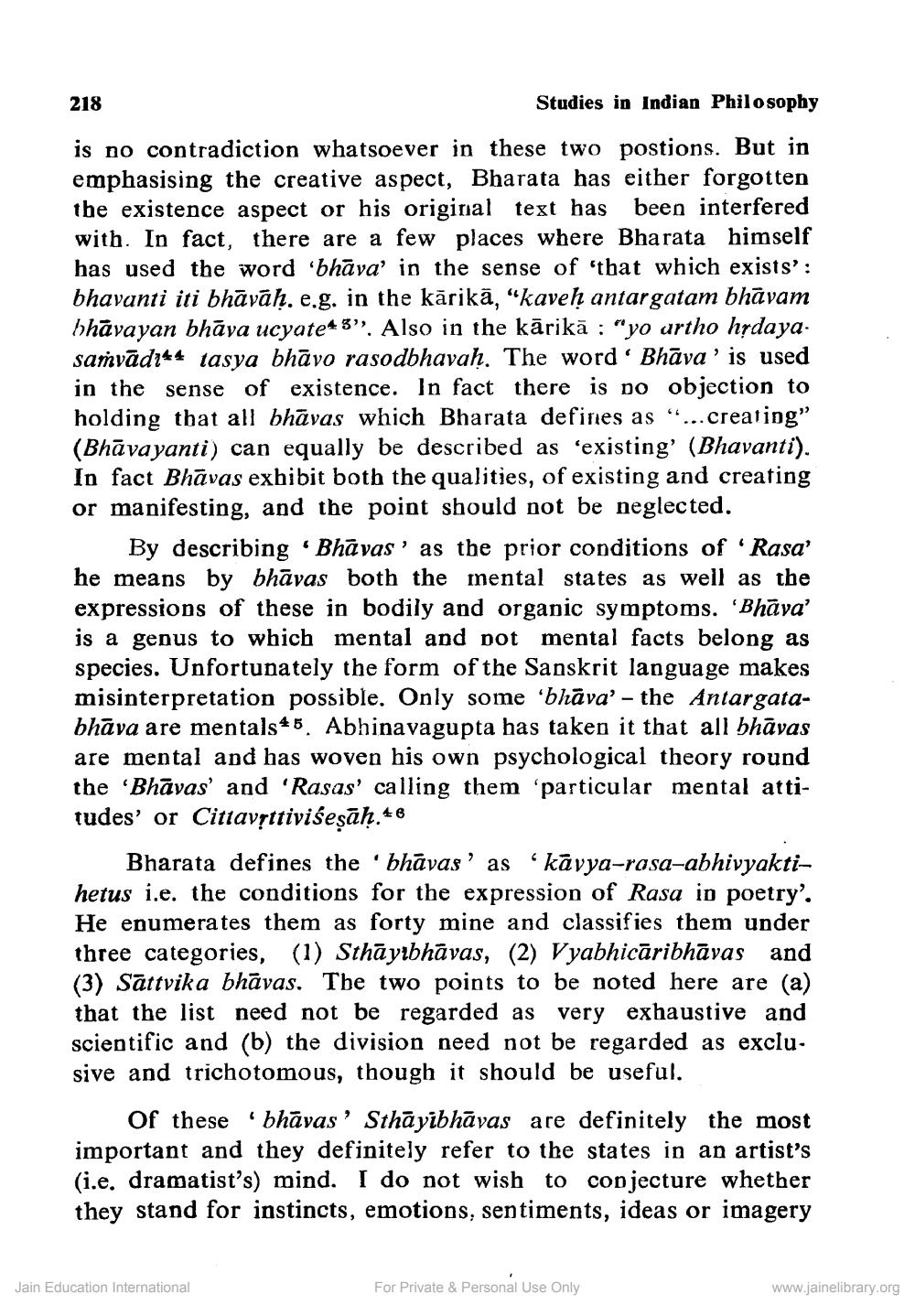________________
218
Studies in Indian Philosophy
is no contradiction whatsoever in these two postions. But in emphasising the creative aspect, Bharata has either forgotten the existence aspect or his original text has been interfered with. In fact, there are a few places where Bharata himself has used the word 'bhāva' in the sense of that which exists': bhavanti iti bhāvāḥ. e.g. in the kārikā, "kaveh antargatam bhāvam bhāvayan bhāva ucyate45”. Also in the kārikā : "yo urtho hrdaya. samvād144 tasya bhāvo rasodbhavah. The word ' Bhāva' is used in the sense of existence. In fact there is no objection to holding that all bhāvas which Bharata defines as "...creating" (Bhāvayanti) can equally be described as 'existing' (Bhavanti). In fact Bhāvas exbibit both the qualities, of existing and creating or manifesting, and the point should not be neglected.
By describing Bhavas' as the prior conditions of 'Rasa' he means by bhāvas both the mental states as well as the expressions of these in bodily and organic symptoms. 'Bhava' is a genus to which mental and pot mental facts belong as species. Unfortunately the form of the Sanskrit language makes misinterpretation possible. Only some 'bhāva' - the Antargatabhāva are mentals 45. Abhinavagupta has taken it that all bhāvas are mental and has woven his own psychological theory round the 'Bhāvas' and 'Rasas' calling them 'particular mental attitudes' or Cittavịttiviseşāḥ.48
Bharata defines the 'bhāvas' as kāyya-rasa-abhivyaktihetus i.e. the conditions for the expression of Rasa ip poetry'. He enumerates them as forty mine and classifies them under three categories, (1) Sthāyıbhāvas, (2) Vyabhicāribhāvas and (3) Sättvika bhāvas. The two points to be noted here are (a) that the list need not be regarded as very exhaustive and scientific and (b) the division need not be regarded as exclusive and trichotomous, though it should be useful.
Of these 'bhāvas' Sthayibhāvas are definitely the most important and they definitely refer to the states in an artist's (i.e. dramatist's) mind. I do not wish to conjecture whether they stand for instincts, emotions, sentiments, ideas or imagery
Jain Education International
For Private & Personal Use Only
www.jainelibrary.org




